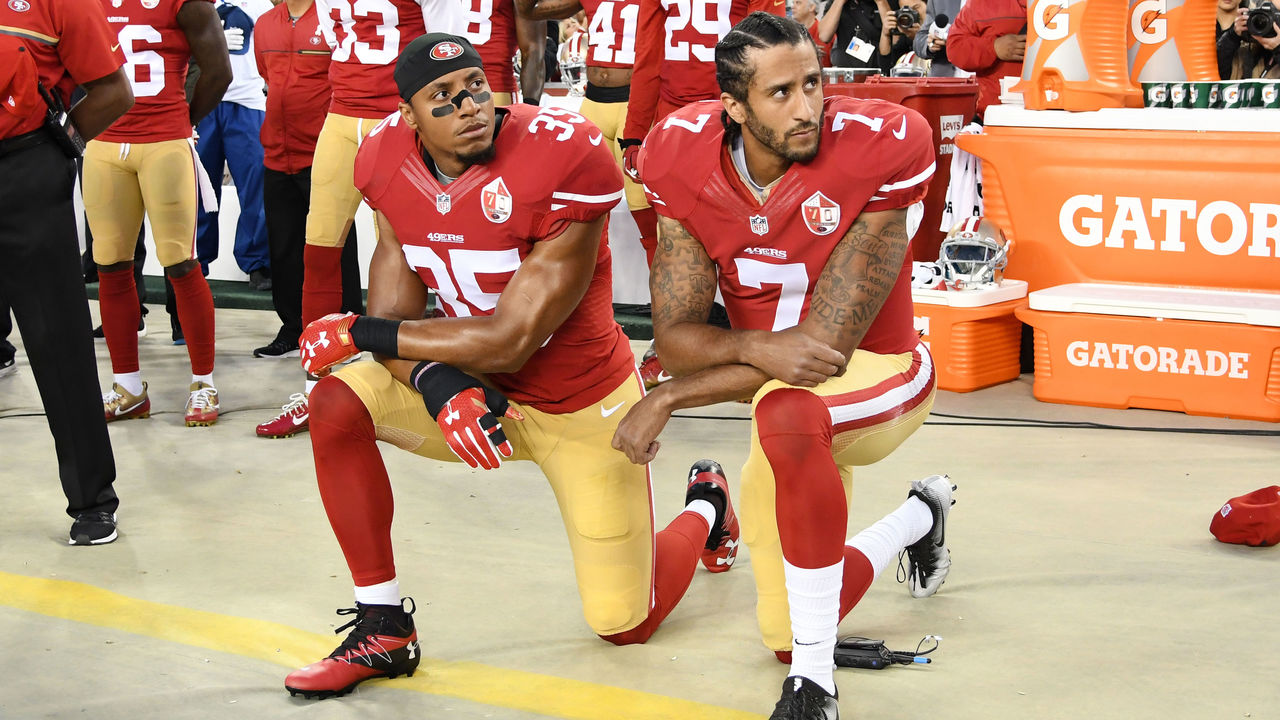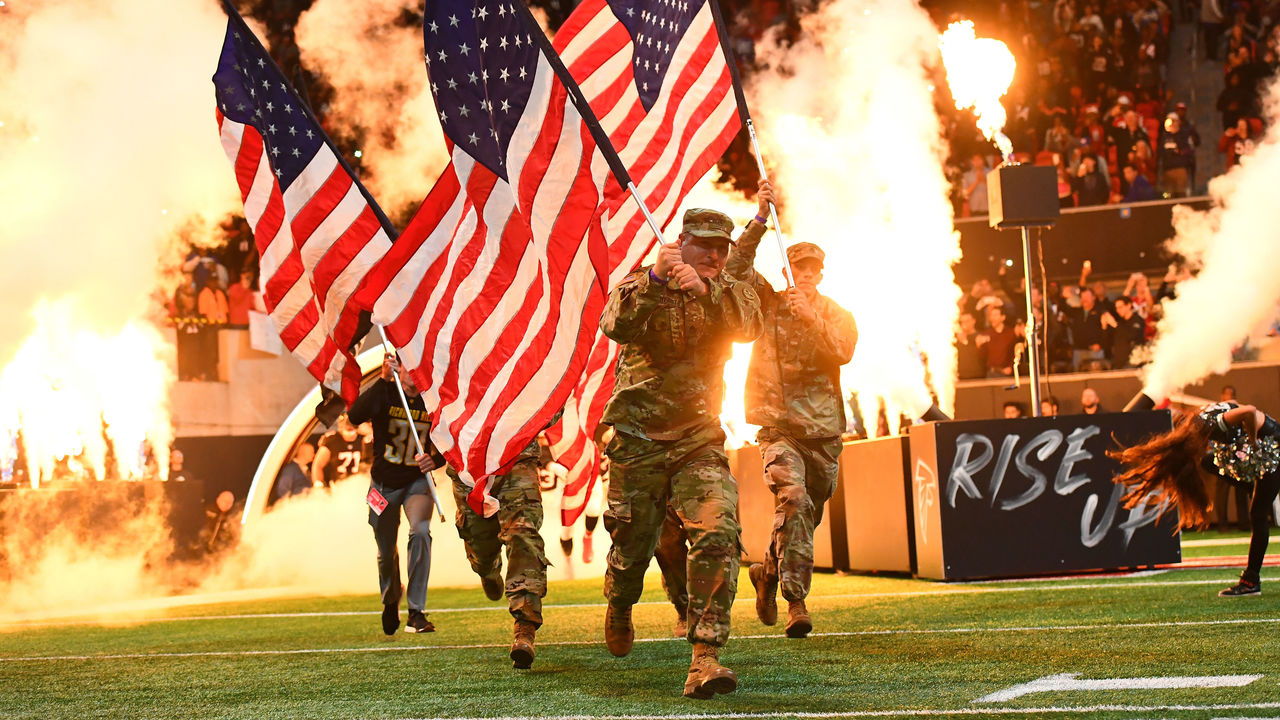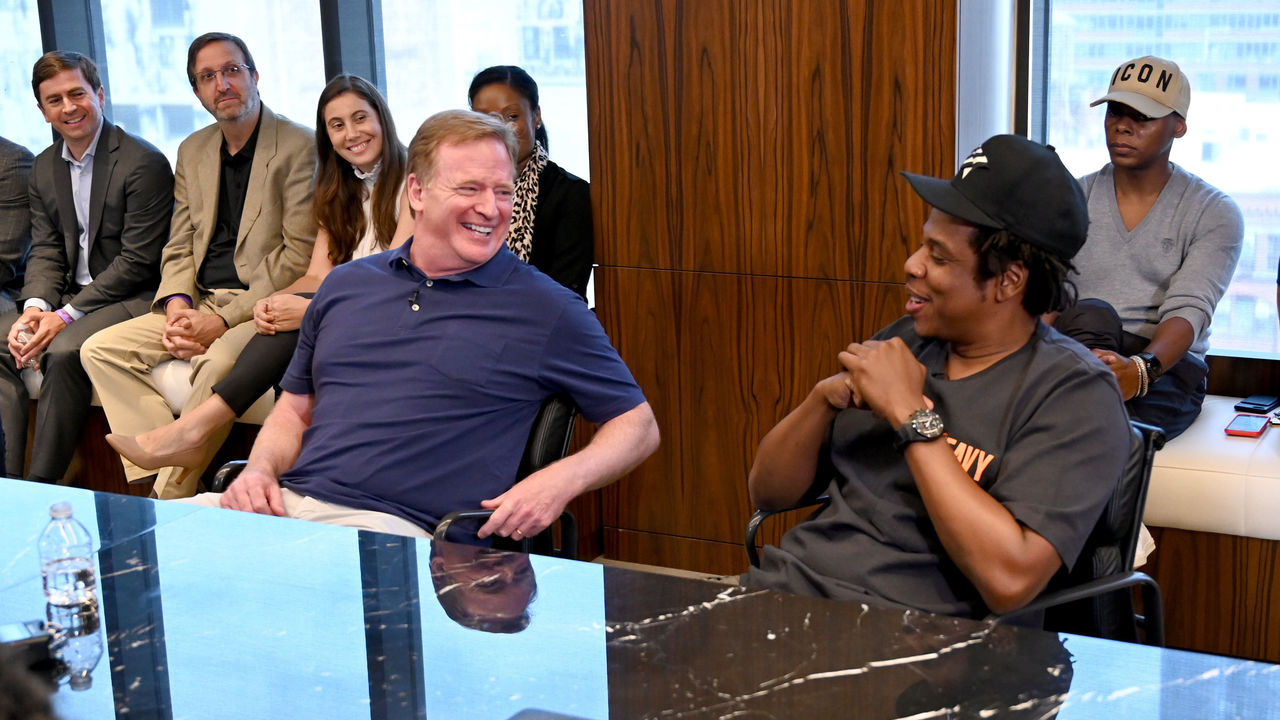What Drew Brees' remarks reveal about the NFL
New Orleans Saints quarterback Drew Brees inadvertently showed Wednesday that if NFL games are going to be played this fall, the league better be prepared for a public-relations nightmare that likely won't go away. All because the NFL once treated protesting players as a public-relations nightmare that had to go away.
In response to a direct question from Daniel Roberts of Yahoo Finance, Brees really stepped in it. Roberts asked Brees about the possibility of players again taking a knee during the national anthem to protest police brutality against black citizens. The topic has renewed resonance in the wake of protests that have fanned across the country in response to the May 25 police killing of George Floyd in Minneapolis.
"I will never agree with anybody disrespecting the flag of the United States of America, or our country," Brees said, before explaining that both of his grandfathers had served in the U.S. military during World War II.
“So every time I stand with my hand over my heart, looking at that flag and singing the national anthem, that’s what I think about. And many times, it brings me to tears thinking about all that has been sacrificed, not just those in the military, but for that matter, those throughout the civil rights movement of the '60s, and all that has been endured by so many people. And is everything right with our country right now? No, it's not. We still have a long way to go. But I think what you do by standing there and showing respect to the flag with your hand over your heart is it shows unity. It shows that we are all in this together, we can all do better, and we are all part of the solution.”
Brees strained to be nuanced, but by conflating protests with "disrespecting the flag," he struck a nerve. His answer echoed what he had said in 2016, when Colin Kaepernick became the first NFL player to protest racial injustice by taking a knee. But in June 2020, the reaction was much different.

Current and former NFL players quickly started dragging Brees for his remarks. One of his teammates, safety Malcolm Jenkins, recorded a video in which he told Brees to "shut the f--- up." Hall of Famer Ed Reed repeatedly called Brees a "sucker." Even LeBron James got in on the act. It's clear that black athletes in general - and NFL players in particular - are increasingly unafraid to speak their minds, even at the risk of alienating a star white player.
And why shouldn't they be? The league didn't listen to Kaepernick; it effectively blackballed him after the 2016 season, and it eventually paid an out-of-court settlement to make him go away. About a year after Kaepernick first took a knee, President Donald Trump used protesting players as props for his never-ending culture war, and the league barely put up a fight. In truth, both Trump and the NFL were playing to type: The same shallow patriotism that animates Trump's divisiveness is a feature of the NFL's longstanding strategy of using the American flag and its military as branding vehicles to promote its sport. Please be respectful.

Most of the league's players responded to Trump's comments by taking a knee during the anthem the following weekend, but the message of those protests was soon subsumed by team owners like Jerry Jones, who made a spectacle of a unified, bastardized version of Kaepernick's kneel-down before quickly threatening any players who sought to continue to protest during the anthem. The NFL's message was clear: It was time to move on from this "social justice" crap.
Then, after a contentious October 2017 meeting between players and owners in New York, the league decided against implementing a formal policy that would define how players should comport themselves during the anthem. Even John Mara of the Giants, as blue-blooded as any owner in the league, came away admitting his "hard-line" position against the protests had "evolved a little bit" after listening to what players actually had to say. Racism wasn't being eliminated, but important conversations were being had, and voices were being heard. It was something.
By the end of the 2017 season, fewer than 10 players were still consistently protesting. That didn't stop the owners from cobbling together a punitive anthem policy in May 2018 anyway - without consulting the players. Trump, seen here showing far less respect to the anthem than any protesting player ever did, was still hammering the league, and rather than stand up for the players, the owners capitulated. The players filed a grievance through their union, and within two months the league agreed not to implement the policy.
The matter fizzled out - just as the NFL wanted all along - and the league turned its attention toward co-opting the cause by agreeing to give $90 million to the Players Coalition, a group of players and ex-players working in social justice advocacy at the community level. The Coalition froze out Kaepernick, and his ex-49ers teammate Eric Reid, who had continued to protest and to speak out, was among several players to withdraw from the group due to concerns about its intent and decision-making. For $90 million - a rounding error for its $16-billion business - the NFL purchased some goodwill, made its PR nightmare disappear, and developed another marketing tool.
Then last summer, the NFL partnered with rapper Jay-Z's company, Roc Nation, "to enhance the NFL’s live game experiences and to amplify the league's social justice efforts." At a celebratory press event, Jay-Z sat in a boardroom yukking it up with NFL commissioner Roger Goodell. Though he had once referred to Kaepernick as an "iconic figure," Jay-Z on that day said he had "moved past kneeling," as though Kaepernick's protest were a mere inconvenience that could be shrugged off. In the fall, the NFL made a ham-fisted attempt to give Kaepernick a tryout in front of all 32 teams, but the hastily arranged endeavor was quickly revealed for the sham it was. The league's work was complete.

Now, this. Brees wound up issuing an apology Thursday morning. But with millions of people in cities across the world continuing to protest, it's clear the NFL can no longer frame police brutality and racial injustice solely according to its bottom line. The league will have to listen - really listen - to what players are saying, even if those things will be painful for its largely white audience to hear. The NFL will have to do something substantive, like offering Kaepernick a real shot at a job - or cleaning up the Ivy League-admissions-style nepotism that permeates its process for hiring coaches and executives, which so often limits opportunities for black candidates to advance or to get second chances.
The statement the league issued on behalf of Goodell over the weekend wasn't encouraging. It mentioned the killings of Floyd, Breonna Taylor, and Ahmaud Arbery in the passive voice, as though all three had been hit by falling pianos. It pointedly never mentioned race, or cops, or police violence. "Instead," as Samer Kalaf wrote for Slate, "when shown incontrovertible proof of Kaepernick's message - that law enforcement dehumanizes and kills black people as well as other people of color - in the form of a video of officer Derek Chauvin suffocating Floyd with his knee for more than eight minutes, the best the NFL could do is say it now realizes 'the power of our platform in communities and as part of the fabric of American society.'"
That kind of empty rhetoric may not cut it any longer, as numerous players revealed to Drew Brees in the last 24 hours. Any actions the NFL might take certainly won't solve racism, but the league still has a chance to show its largely black workforce it's serious. This isn't just a PR nightmare for the NFL, and it never was.
Dom Cosentino is a senior features writer at theScore.